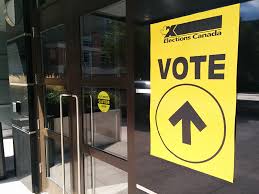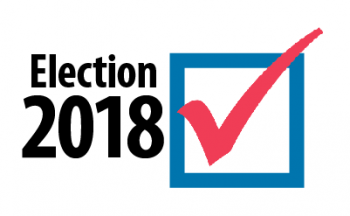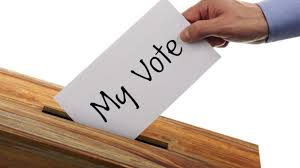 October 2019
October 2019
This year the federal election occurs in the middle of annual general meeting season when many communities elect directors to serve on their condo boards. How you vote in both elections will have an impact on the comfort, safety, security and cost of your home.

Each month Toronto Condo News receives questions and comments from readers; we respond privately to each and every one, providing general information and advice. A common theme of condo dweller concerns is disagreement with how the board operates and makes decisions, particularly in the aftermath of board elections. In this is a similarity to the aftermath of government elections when voters become disillusioned by those they vote into office.
Elected candidates often fail to perform as expected or promised. Unreasonable expectations and misunderstanding of responsibilities by those governed by the elected are common sources of disputes.
Many of our laws are based on common sense and practicality. The same applies to condo governance. Two basic tenets of condo corporations are:
- Condo governing documents follow a hierarchy where no lower level can conflict with a higher level. In practice this means condo rules must not conflict with, or supersede, the declaration, by-laws or Condo Act.
- Terms of a condo purchase are negotiated between buyer and seller. The condo board has no authority to retroactively change these terms or to influence future sales by intervening on these matters. As this relates to condo rules, the board does not have authority to prohibit what is currently allowed without consent of owners. The board can enact reasonable rules to promote the safety, security or welfare of owners and property of the corporation. Rules can be enacted to prevent unreasonable interference with the use and enjoyment of common elements, units or other assets of the corporation.
Problems tend to arise when individuals attempt changes to the above. As we go to the polls later this month to elect another federal government, demand that your representative acknowledge where condominium management and higher levels of government currently conflict and make specific commitments to resolving conflict. Following are some of the more contentious conflicts where clear and unambiguous resolution is desirable.
Short-Term Rentals
Elected officials seem incapable of making practical and timely decisions with regard to short-term rentals. Laws to be enacted more than a year ago unexpectedly became a matter for appeal at the Local Planning Appeal Tribunal (LPAT). Proceedings were delayed for more than a year without any apparent explanation and then resumed last month. As of this writing no decision has been made with regard to implementation of these laws.
While condo corporations have been anxiously awaiting implementation of short-term rental laws, in reality every condo community has a clear direction regarding short-term rentals. The corporation’s declaration or by-laws make it clear whether or not short-term rentals are allowed. While owners can vote to change this in their governing documents, some boards may desire to make such a change while avoiding the time, cost and conflict of an owner vote. They may choose to implement a rule and believe it is enforceable if not disputed at the time. This approach conflicts with purchase agreements and other governing documents.
Changing condo rules is simpler, faster and easier. It works until someone chooses to dispute the legality of the change in court at which time an entire community can pay the cost.
Marijuana and Smoking
Our government, in its wisdom or perhaps as a way to increase taxes, has chosen to legalize marijuana with no apparent concern for the risks and problems created. Communal living is challenged in that it is impossible to seal off units where smoking occurs from other units and common areas. Each condo community must decide if they will allow smoking and be prepared to deal with the ramifications of that decision.
Prohibiting something that was originally allowed is generally recognized as requiring an owner vote. Some condo boards argue exceptions regarding short-term rentals and marijuana use, as do some lawyers. While disputes regarding these issues are likely to continue until some are prepared to bring actions to court, common sense suggests the basic tenets presented here will likely prevail at great expense to those who argue otherwise. When a board unilaterally changes the rules instead of obtaining owner support, owners are usually unaware of the likely future cost and impact.
Condo Act in Limbo
Government actions impact long after they have lost an election. The last provincial government implemented changes to the Condo Act widely regarded as overdue. At that time they chose to create a Condominium Authority of Ontario funded by condo owners paying a monthly tax (added to their monthly condo fees and paid to the province by the corporation). The current provincial government has chosen to maintain this burden on condo owners while failing to complete implementation of revisions to the Condo Act. As reported previously in Toronto Condo News, the Condominium Authority of Ontario has added to the financial obligations of condo owners without providing much in the way of value.
Balanced Budgets
Only in condo government are budgets required to be balanced. Any shortfall must be addressed by increasing condo fees, reducing expenditures or implementing a special assessment all of which becomes directly payable by owners.
Other levels of government operate as if deficits don’t matter which is just another way of requiring everyone to pay even more at a later date. Of course, deficits do matter. Perhaps politicians care less about deficits because current voters like getting something they perceive as free. This allows politicians to spend freely and fail to control costs. Recent data shows that more than 30 percent of every dollar spent is borrowed. This is money to be paid back with interest rather than being used for other purposes. Re-electing any government failing to balance their budget leads to further mismanagement by voter mandate.
 When voting for government at any level including condo board the best protection is educated voters. Understand the most important issues and vote for candidates supporting your views and interests. Candidates and parties failing to uphold their promises should not be re-elected. This is the only way to obtain a responsive government.
When voting for government at any level including condo board the best protection is educated voters. Understand the most important issues and vote for candidates supporting your views and interests. Candidates and parties failing to uphold their promises should not be re-elected. This is the only way to obtain a responsive government.







